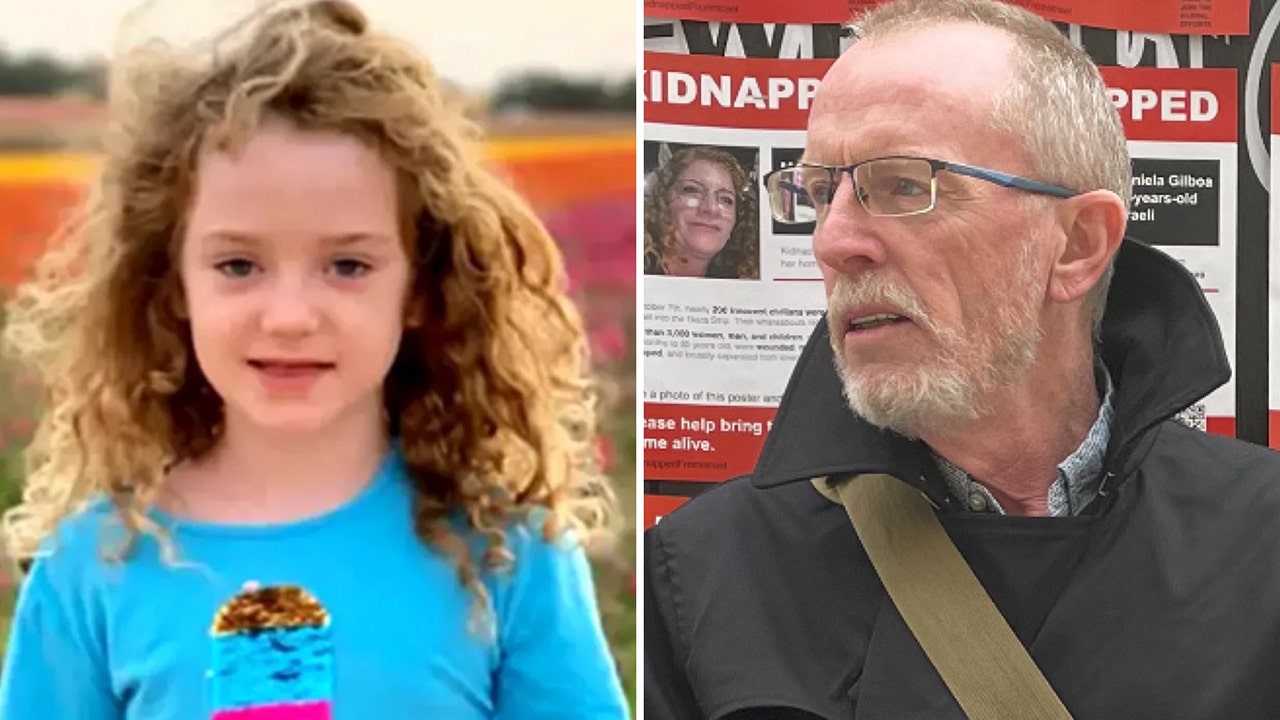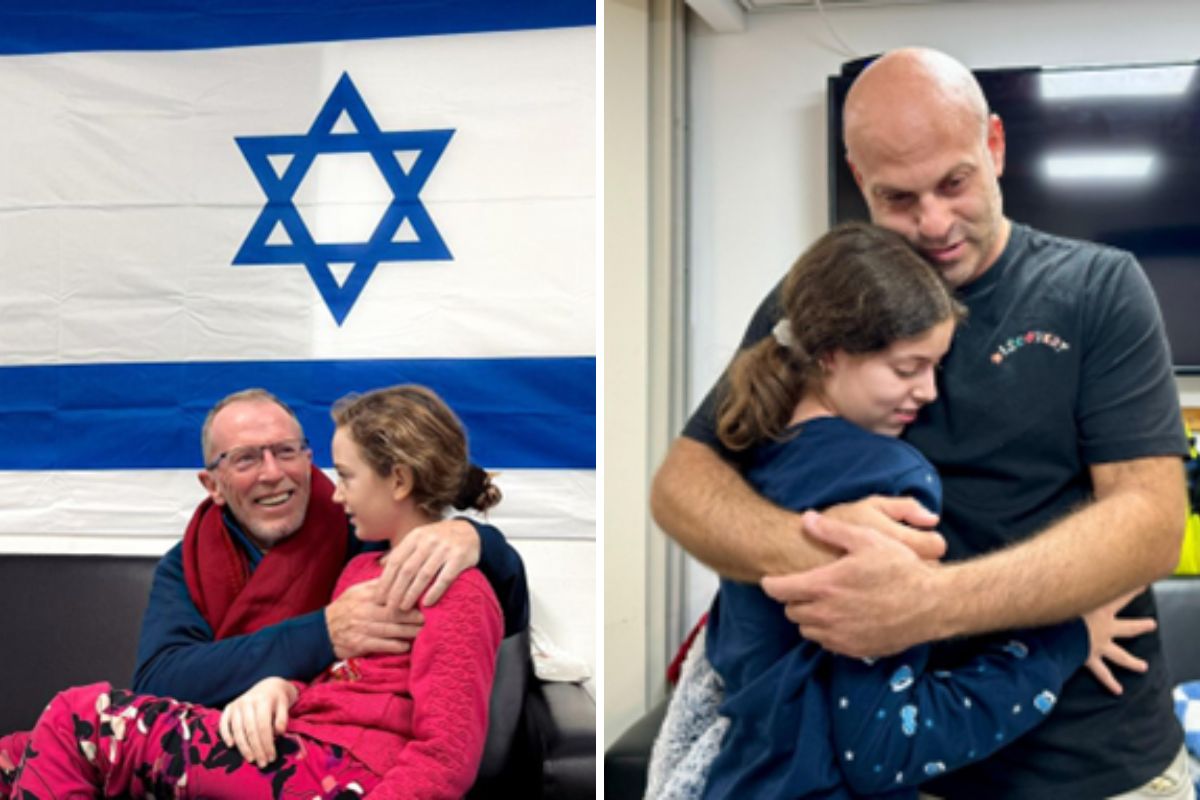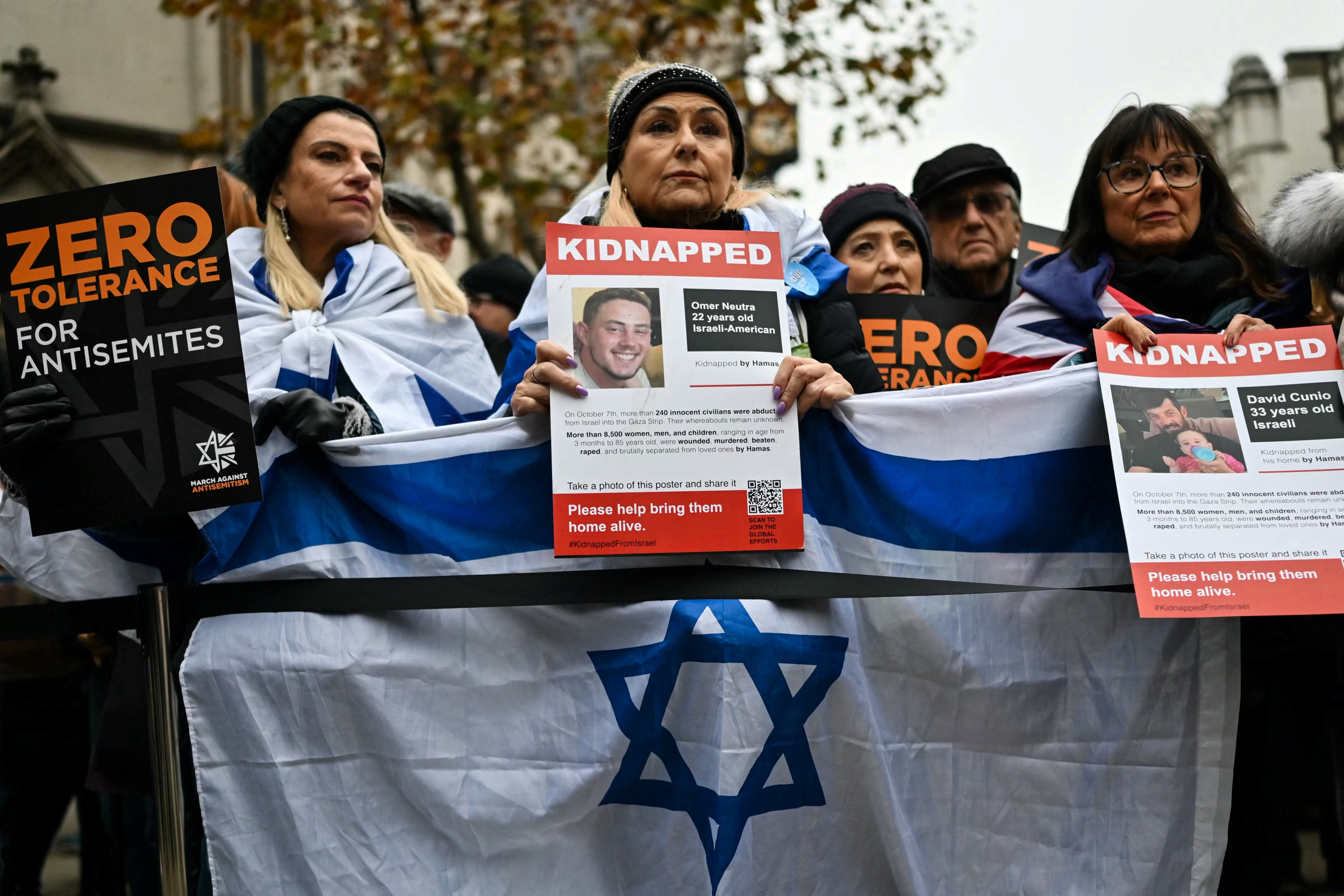Israel, Hamas Exchange Second Set of Hostages, Prisoners
Hamas released 17 hostages late Saturday, 13 Israelis and four Thais. A short time later, early Sunday, Israel freed 39 Palestinian prisoners on the second day of a four-day truce.
The hostages were released hours later than expected after the militant group accused Israel of violating the exchange agreement, claims Israeli officials denied.
Qatari and Egyptian mediators were able to address Hamas' concerns, and the hostages were finally released just before midnight.
Of the 13 released Israelis, there were seven children and six women, most from Kibbutz Be'eri. The children ranged in age from 3 to 16, and the women ranged from 18 to 67.
The announcement of the hostages' release came from the Israeli military and the Shin Bet security service after the prime minister's office said in a statement that the government 'embraces the 17 hostages that are returning home, 13 of our citizens and four Thai citizens.'
The prime minister's office later said it had received the list of hostages to be released on Sunday, the third of the four agreed-to swaps. Security officials are checking the list, and the hostages' families have been notified, a statement from the office of the coordinator for the hostages and missing said.
A video released by Hamas showed the hostages appearing shaken but mostly in good physical condition as masked militants led them to Red Cross vehicles headed out of Gaza. They were taken to hospitals in Israel and reunited with their families.
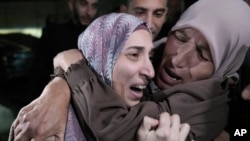
Hamas has been designated a terrorist organization by the U.S., U.K., EU and others.
Although one of Israel's preconditions for the swap was not to split the families of the abductees, at least two families from Kibbutz Be'eri were split. A kibbutz spokesperson said all the released hostages either had a family member killed in the Oct. 7 rampage or had left a loved one in captivity in Gaza.
One was Hila Rotem, 12, whose mother remains with Hamas.
Of the 39 Palestinian prisoners, 33 were children and six were women, a Qatari spokesperson said.
Television images showed prisoners being welcomed home.
The most prominent individual released was Israa Jaabis, 38, who had been imprisoned since 2015 after being convicted of carrying out a bombing attack that wounded an Israeli police officer and left Jaabis with severe burns on her face and hands.
Israeli Minister of Defense Yoav Gallant went to the Gaza Strip on Saturday for an operational assessment. He met with commanders and soldiers and discussed using the pause to prepare to resume ground operations once the hostages are all free.
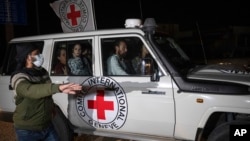
'We cannot leave Gaza and stop the war until we reach a situation in which we bring back all the hostages - because we have many more [held captive],' he said.
U.S. President Joe Biden spoke Saturday afternoon with Qatar's Emir Sheikh Tamim bin Hamad Al Thani and was briefed throughout Saturday on the latest of the hostage deal implementation, spokesperson Adrienne Watson for the White House National Security Council said.
The U.N. said the pause allowed it to increase its humanitarian assistance into and across Gaza.
On Friday, 200 trucks were sent from Nitzana to the Rafah crossing, and 137 trucks of goods were offloaded at the reception point in Gaza by the U.N. Relief and Works Agency for Palestinian Refugees in the Near East.
Four tanks of fuel and four tanks of cooking gas were transferred from Egypt to U.N. humanitarian aid organizations in the southern Gaza Strip via the Rafah crossing. The fuel and cooking gas are designated for operating essential humanitarian infrastructure in the Gaza Strip.
The Office for the Coordination of Humanitarian Affairs said in a statement that 61 trucks of aid were delivered to northern Gaza on Saturday, the largest number since Oct. 7. They included food, water and emergency medical supplies.
Eleven ambulances, three coaches and a flatbed were delivered to Shifa Hospital to assist with evacuations.
Another 200 trucks were dispatched from Nitzana and 187 of them entered Gaza by 7 p.m. local time. In addition, 129,000 liters of fuel crossed into Gaza, the U.N. statement said.
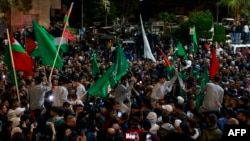
For many of the 2.3 million people who live in the Gaza Strip, the pause in the near-constant air and artillery strikes has offered a first chance to safely move around, take stock of the devastation, and seek access to the humanitarian aid pouring into Gaza.
Over the course of the cessation in fighting, Hamas is to release at least 50 hostages, and Israel 150 Palestinian prisoners, as part of an agreement struck during talks involving Israel, Palestinian militant groups, Qatar, Egypt and the United States.
Israel said the four-day stop in fighting would be extended an extra day for every 10 additional hostages freed by Hamas. A Qatari spokesperson said Doha hopes to broker another agreement to release more hostages from Gaza by the cease-fire's fourth day.
VOA's Natasha Mosgovaya contributed to this report. Some information for this article was provided by The Associated Press, Agence France-Presse and Reuters.

